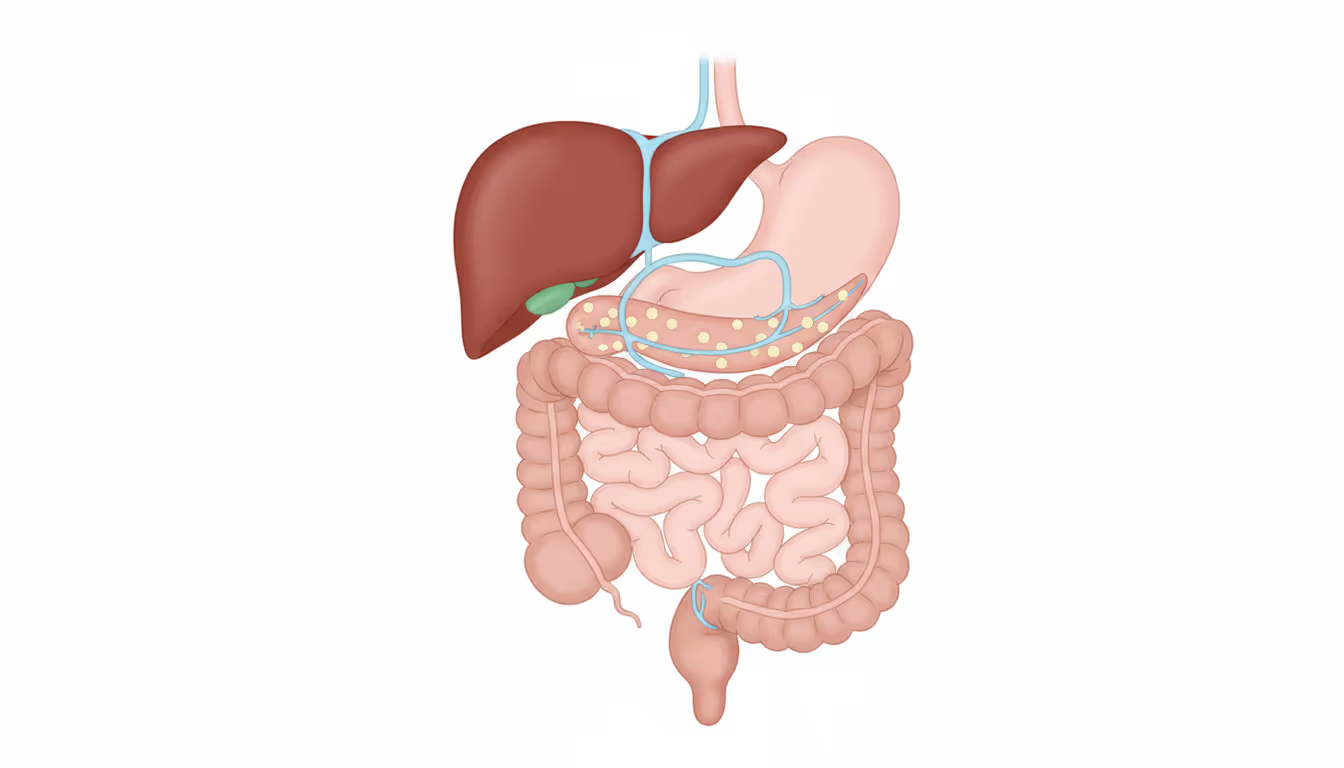
Pancreatic insufficiency occurs when the pancreas fails to produce adequate digestive enzymes needed for the intestine. This condition is a key feature of certain disorders. The pancreas is a soft, elongated organ approximately 6 inches in length, situated at the back of the abdomen, behind the stomach. Its head is positioned on the right side of the abdomen and is linked to the duodenum at the upper part of the small intestine. The tail, or the narrower end of the pancreas, reaches toward the left side of the body. The pancreas is responsible for producing pancreatic juices, also known as enzymes, and hormones like insulin. These enzymes aid in food digestion in the small intestine, while insulin regulates blood sugar levels. Both enzymes and hormones are essential for the proper functioning of the body. The pancreatic juices travel through the main pancreatic duct, which merges with the bile duct, connecting the pancreas to the liver and gallbladder. This common bile duct transports bile—a fluid that assists in fat digestion—to the small intestine near the stomach.




